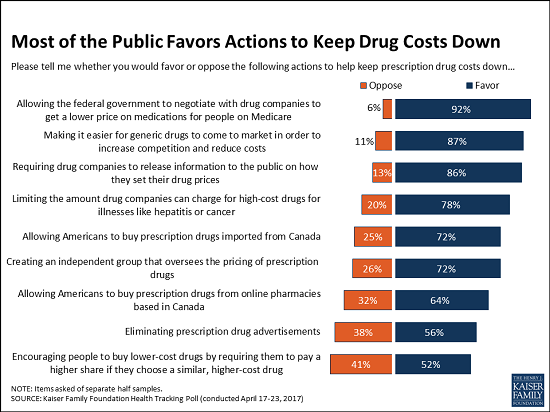Alice
in Wonderland, recognized as a‘Children’s Classic, also is a reflection of our
own Wonderland populated by strange creatures whom, as one sees and hears more
of them, we discover that, as Alice said, things get ‘Curiouser and Curiouser.’
It’s called The Beltway, a reference to the
seat of our Federal government (although several agencies have headquarters
outside the ‘physical boundaries’ of The Beltway, it is the ‘Source’ or Mother
head from which all our laws and regulations flow).
It is comprised of
both elected and unelected persons who make decisions that affect our everyday
lives, our health and well-being, and our prosperity...and not always for the
best.
That’s because, unfortunately,
the things that they do too often reflect special interests, are based on
self-contradictory stances, and exhibit complete disregard for facts that
disrupt their Wonderland.
The most notable
example of this denial of facts is evidenced by the Food and Drug Administration
(FDA) decisions affecting the right—and the need—of Americans to make personal,
responsible decisions to determine that safe and affordable brand-name
medicines are indeed available from licensed, registered pharmacies in Tier One
Countries whose standards of safety and efficacy meet or exceed those of the FDA,
and are therefore safe sources for them to use to purchase their medications.
The FDA reflects
Alice’s thoughts even before she descends into Wonderland. Consider this telling quote she makes: “If I
had a world of my own, everything would be nonsense. Nothing would be what it
is, because everything would be what it isn't. And contrary wise, what is, it
wouldn't be. And what it wouldn't be, it would. You see?”
Yes, Alice and FDA we see. Both of
you believe you have a world of your own and it is subject to the bending of
your will, even though the FDA
was ostensibly designed to protect the health and well-being of American
citizens, ensuring among other things that the prescription medicines made available
to Americans are indeed safe and effective.
That is why the ‘Long
Title’ of The Prescription and Drug Marketing Act of 1987 is: An Act to amend
the Federal Food, Drug, and Cosmetic Act to ban the reimportation of drugs
produced in the United States, to place restrictions on the distribution of
drug samples, to ban certain resales of drugs by hospitals and other health
care facilities, and for other purposes.
Although, the ‘reimportation’
mention is specific to restrictions upon reimporting medicines produced in the
US, marketed outside the Country and then brought back into the US, i.e., ‘reimportation’,
the FDA, in collusion with the special interests of Pharma shapes its and our world with that ‘reimportation’
of prescription medicines somehow doesn’t mean what it means.
To come to such a
conclusion, the FDA and Pharma say that the law doesn’t mean what it means.
Significantly, all
the Lipitor produced by Pfizer for sale in the US is manufactured in Ireland for
sale in the US and elsewhere. That means
it is imported into this country, whether by Pfizer or by individuals.
Pfizer, as the
manufacturer of Lipitor has the right, of course, to sell the medicines it
produces, but in the absence of any restriction upon the right of individuals
to personally import their medicines, then it is self-evident that Americans do
indeed have the right to personally import their Lipitor and other prescription
medicines.
In yet another
example of Wonderland-speak, the FDA refers to seized personally imported
Lipitor prescriptions as a ‘new drug’ or a drug not approved by the FDA,
although it clearly is a valid medicine ordered by an individual with a doctor’s
prescription. So, says the FDA, it is not
what it is.
A further reading
of The Prescription and Drug Marketing Act of 1987 makes it abundantly clear
that the law’s intent is to ban ‘certain’ resales of reimported medicines “by hospitals
and other health care facilities...” and there is no intent to restrict
Americans from purchasing their medicines via personal importation, except for
the FDA creating its own world where nothing is what it seems.
But perhaps the
best example of this bizarre world is on the FDA’s own web page as it answers
the question: Is it legal to import prescription medicines?
The FDA
response: “In most circumstances, it is
illegal for individuals to import drugs into the United States for personal
use. This is because drugs from other countries that are available for purchase
by individuals often have not been approved by FDA for use and sale in the
United States. For example, if a drug is approved by Health Canada (FDA’s counterpart
in Canada) but has not been approved by FDA, it is an unapproved drug in the
United States and, therefore, illegal to import. FDA cannot ensure the safety
and effectiveness of drugs that it has not approved.”
Let’s take this
point-by-point:
FDA
Statement: In most circumstances, it is illegal for individuals to import drugs
into the United States for personal use. This is because drugs from other
countries that are available for purchase by individuals often have not been
approved by FDA for use and sale in the United States.
Common
Sense Response: The FDA says drugs sold
in other countries to their citizens ‘often’ have not been approved by the FDA. The use of the term ‘often’ indicates that
there are some drugs that the FDA has approved.
The FDA should let us know which of those medicines have been
approved...or should the ‘often’ term be ‘never’? (The answer is ‘never’.)
FDA
Statement: “For example, if a drug is approved by Health Canada (FDA’s
counterpart in Canada) but has not been approved by FDA, it is an unapproved
drug in the United States and, therefore, illegal to import. FDA cannot ensure
the safety and effectiveness of drugs that it has not approved.”
Common
Sense Response: This is the winner of
the Wonderland double-talk award.
Senator Bernie Sanders (I-VT) has asked opponents of personal importation:
“Where are all the Dead Canadians”. It
is ludicrous of the FDA to say that a medicine approved by Health Canada is
inferior to that of the FDA. Also, the
FDA talks about challenges in ‘ensuring’ the safety of the drug,
even though it is the same medicine as sold in the US.
This statement is also a reflection of the abuse and overreach of the FDA. Congress has repeatedly supported personal
importation in favorable votes only to be stymied by unprecedented ‘certification’
requirements by the Secretary of Health and Human Services. Now, S. 122, a bi-partisan bill introduced by
Senators Amy Klobuchar (D-MN) and John McCain (R-AZ) calls specifically for facilitating
personal importation of medicines from Canada that are approved by Health
Canada.
By
suggesting that Health Canada dos not have the expertise to determine the
safety and efficacy of a medicine, the FDA has moved from being a regulatory agency
to an advocacy stance that flies in the face of the facts, and undertaken a
legislative initiative that is outside its legal boundaries as a department of
the executive branch.
One
can only hope that Senators Klobuchar and McCain will demand that the FDA
remove this incorrect statement about Health Canada, an agency of the highest
repute.
At least for Canadians? Really, is there a genetic distinction
between Americans and Canadians that makes a prescription safe for Canadians,
but somehow unsafe for Americans? Not
hardly. But then, in this world of outlandish claims, everything is nonsense.
Nothing is what it is, because everything would be what it isn't. And contrary
wise, what is, it wouldn't be. And what it wouldn't be, it would.
“You see?”
It is time for Congress to step up and end this
Alice in Wonderland scenario and to direct the FDA to cease attempts to
increase its intended limited authority, and to work on behalf of the millions
of Americans who are being denied their access to safe, affordable medicines because
of illogical and contradictory actions that usurp legislative oversight and
direction of the agency. Otherwise, things will get ‘Curiouser and Curiouser’!


